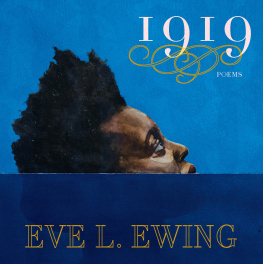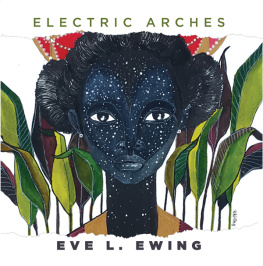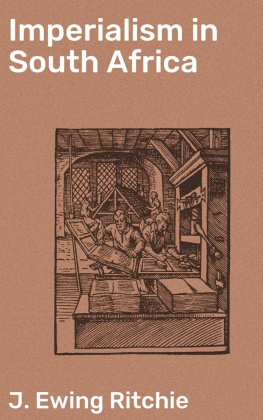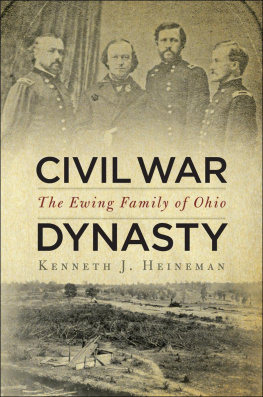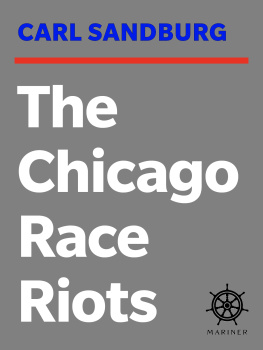
Eve Ewing is a writer of great depth, reverence, and enthusiasm, one of Chicagos greatest critics and champions.
The Cut
A versatile, deeply perceptive, and imaginative thinker dedicated to the revolutionary potential of art.
Publishers Weekly
The Zora Neale Hurston of [her] generation.
Studio 360
A truly rare cultural phenomenon: an artist who not only holds up a mirror to society, but makes herself a catalyst to change it.
Chicago Tribune
Praise for Electric Arches:
A precision that is both beautiful and deeply uncomfortable [a] profound act of love for family, a city, and its children.
NPR
While reading, I found myself continually thinking, I had no idea you could make poetry do that, followed by, thank god she has done this.
Tracy K. Smith, National Poet Laureate
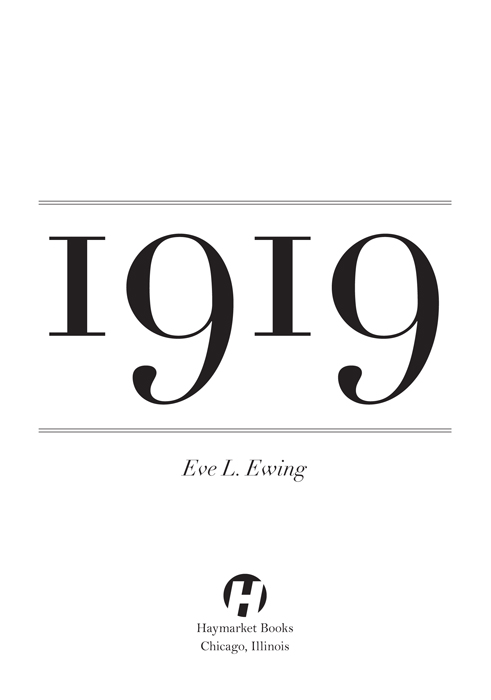
to all those who speak of rivers
to all those who made safe passage and to all those lost in the waters
2019 Eve L. Ewing
Published in 2019 by
Haymarket Books
P.O. Box 180165
Chicago, IL 60618
773-583-7884
www.haymarketbooks.org
ISBN: 978-1-60846-600-9
Distributed to the trade in the US through Consortium Book Sales and Distribution (www.cbsd.com) and internationally through Ingram Publisher Services International (www.ingramcontent.com).
This book was published with the generous support of Lannan Foundation and Wallace Action Fund.
Printed in Canada by union labor.
Cover artwork by Brian Dovie Golden, www.briandoviegolden.com.
Cover and text design by Rachel Cohen.
Library of Congress Cataloging-in-Publication data is available.
10 9 8 7 6 5 4 3 2 1

The report contains recommendations, which, if acted upon, will make impossible, in my opinion, a repetition of the appalling tragedy which brought disgrace to Chicago in July of 1919.
(The Negro in Chicago, xiv)
And she called his name Moses: and she said, Because I drew him out of the water.
(Exodus, Chapter 2, Verse 10, King James Version)
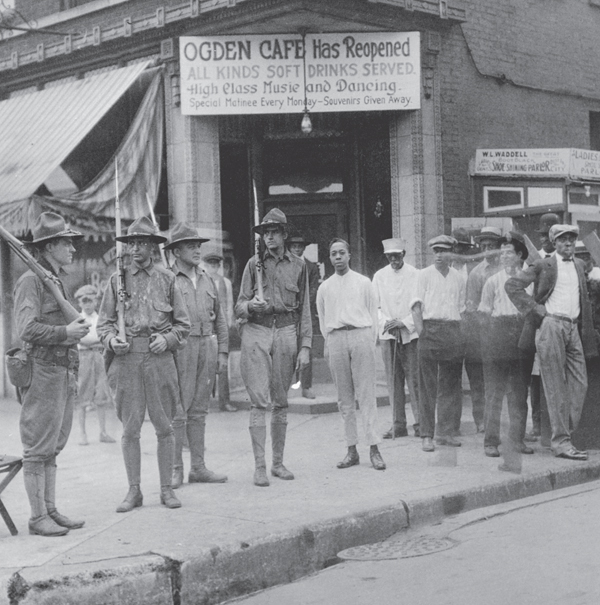
This book is a story.
When I was doing the research that would eventually go into my second book, Ghosts in the Schoolyard: Racism and School Closings on Chicagos South Side, and I was writing about segregation in Chicago, one of the most helpful documents I encountered was a report from 1922 called The Negro in Chicago: A Study on Race Relations and a Race Riot. Just the title alone enticed me; it was so direct and made such a bold claim on totality. How could someone claim to tell the story of Black people in this city? The whole story? This report was prepared by a committee appointed by the governor, made up of six Black men and six White men, all deemed by their peers to be upstanding and respectable citizens. Its stated purpose was to dissect the 1919 race riot that had happened in Chicago three years prior, to analyze its causes, and try to prevent something like that from happening again. In order to figure out the race riot, the authors reasoned, what they really had to figure out was the reality of everyday life for Black people in their era, and so thats what they set out to do.
For my writing of Ghosts, I needed one specific thing from The Negro in Chicago, and that was information about housing segregation at the beginning of the Great Migration. But as I was doing my research, I kept getting sucked into other parts of the report, things that were tangential to my work but were so fascinating. They gave me a view into Black life in my city a century earlier, and so many things struck me as being either radically different or completely unchanged. And even though this was a government-commissioned report, many of its passages immediately made me think about poetry. They were so narrative, so evocative, so imagistic. The report was like an old tapestry with loose threads sticking out, and I wanted to tug on them and see what I could unravel, see what new thing I could weave.
And then, there was the matter of the race riot itself. I knew that 1919 had been known as the Red Summer for the wave of race riots that swept across the United States. But, like many aspects of Black history, this was something I didnt learn much about in school, and only then when I was very far along in my academic career. Most of what I knew about 1919, I learned through self-study when I was in graduate school. As a lifelong Chicagoan, I didnt often hear people discuss the race riot that had occurred in our city a century ago, and I wasnt sure that most people knew about it. Chicagoans tend to be enthusiastic and vocal discussants of our own history. But 1919 didnt seem to make it into the timeline alongside titanic stories about Fort Dearborn, Jean-Baptiste Point du Sable, the Worlds Columbian Exposition, the 1968 riots, Richard J. Daley, or Harold Washington.
This collection of poems is meant as a small offering, an entry point into a conversation about a part of our history that I think is worth talking about much more than we do. Almost every poem in this collection is in conversation with a passage from The Negro in Chicago. Youll see those passages written in italics at the top of the page. The page number in parentheses represents the place where you can find the passage in The Negro in Chicago. The report is a publicly available document.
I like to use poems as what-if machines and as time-traveling devices, and Im grateful to have had the chance to do that with this project. I learned a lot, and I hope you learn something too and then go tell someone else about it.
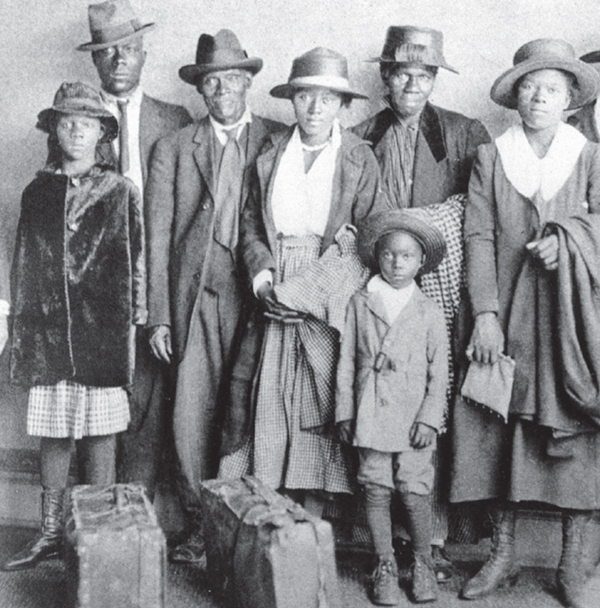
Before
In the beginning of the twentieth century, the first Great Migration was underway. Black people fled the South in droves. They sought an escape from sharecropping and the terror of lynch mobs that tormented innocents. They sought work and better lives for their children. They got on the train and found new homes. Fifty thousand Black people came from the South to Chicago between 1910 and 1920. Many of them were lured by the promises made in the Chicago Defender, the Black-owned newspaper that urged them northward on the train. Life in the big city was different than in Mississippi or Alabama. But it brought its own difficulties, including the reality of Northern segregation, overcrowded and substandard housing, the challenge of finding work for fair pay, and the struggle to survive in a harsh new place.
Exodus 1
The stimuli of suggestion and hysteria gave the migration an almost religious significance, and it became a mass movement. Songs and poems of the period characterized the migration as the Flight Out of Egypt, Bound for the Promised Land, Going into Canaan, The Escape from Slavery, etc. (86)
Now these are the names of the people of Adeline, which came into Mississippi:
Margaret, Prince, Julia, Cora, Amy, Fanny, Celia, and Mollie;
Next page
